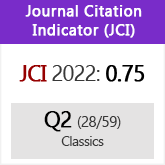Euripides’ Alkestis: a reading
DOI:
https://doi.org/10.3989/emerita.1980.v48.i1.838Abstract
The play points up the existence of personal relations within the bounds set by τύκη and ἀνάγκη. Admetos’ attempt to evade the rule of τύκη for himself prompts scrutiny of the ways in which man’s lot is limited also by social relationships, inside and outside the family. Alkestis, as redeemer, holds out to Admetos an impossible χάρις: her χάρις is annulled, paradoxically, by the βια (inspired by friendship) of Herakles, another redeemer, who restores the natural and moral law that each man must die his own death. The evaluations of life put forward by Pheres, by the chorus (which insists, not with perfect aptness, on the saving power of τλημοσύνη), and by Admetos (initially) are inadequate. But Alkestis’ death and Herakles’ rescue of her reveal the terms on which life is to be lived and what ἀνάγκη entails.
Downloads
Download data is not yet available.
Downloads
Published
1980-06-30
How to Cite
Bell, J. M. (1980). Euripides’ Alkestis: a reading. Emerita, 48(1), 43–75. https://doi.org/10.3989/emerita.1980.v48.i1.838
Issue
Section
Articles
License
Copyright (c) 1980 Consejo Superior de Investigaciones Científicas (CSIC)

This work is licensed under a Creative Commons Attribution 4.0 International License.
© CSIC. Manuscripts published in both the printed and online versions of this Journal are the property of Consejo Superior de Investigaciones Científicas, and quoting this source is a requirement for any partial or full reproduction.All contents of this electronic edition, except where otherwise noted, are distributed under a “Creative Commons Attribution 4.0 International” (CC BY 4.0) License. You may read here the basic information and the legal text of the license. The indication of the CC BY 4.0 License must be expressly stated in this way when necessary.
Self-archiving in repositories, personal webpages or similar, of any version other than the published by the Editor, is not allowed.














